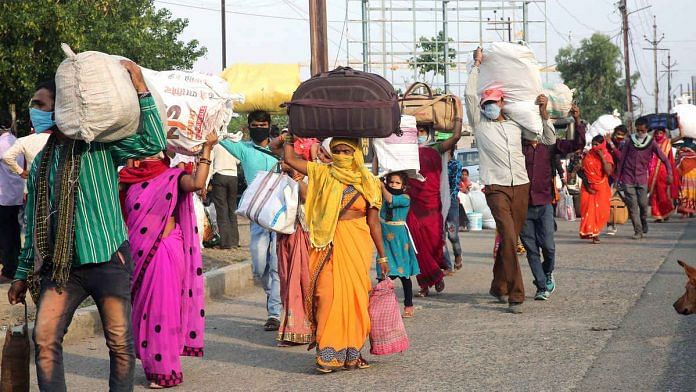New Delhi: The vulnerability of the Indian economy exposed by Covid-19 emphasizes the need for an economic model that brings people at the bottom of the pyramid to the fore, according to a report released on Thursday.
India needs to reorient its economic structure to make it much more people-centric and inclusive, think tanks the Council on Energy, Environment and Water, and the National Institute of Public Finance and Policy said in a report titled “Jobs, Growth and Sustainability: A New Social Contract for India’s Recovery.”
It recommended that India should build models where its economy is more resilient to climatic, health and humanitarian risks that “can have catastrophic consequences and choke the economy, imposing far greater costs than the investment needed to increase resilience.”
The pandemic and the blow from a virtual shutdown of a nation of 1.3 billion people has pushed Asia’s third-largest economy toward its first full-year contraction in more than four decades — some say of as much as 5%. The lockdown has left businesses broken and millions jobless. Migrant workers were left stranded without income, while millions more fled to their villages, reluctant to return to the cities.
The government has unveiled a support package worth $277 billion to help cushion the blow, including easing access to credit for small businesses and offering cheap loans to workers and farmers.
The report, unveiled Thursday, has sought protective measures for small businesses from predatory practices by some trading partners. This can prevent a collapse of domestic industries, especially those in ferrous and non-ferrous metals, textiles, pharmaceuticals, solar cells and modules, and heavy machinery.
Small businesses, referred to as micro, small and medium enterprises, represent 90% of India’s industrial units and employ 40% of its workforce.
It also recommended starting state-supported canteens for 30 million urban migrant workers. This would cost 265 billion rupees ($3.5 billion), but can create 1.2 million jobs and drive demand for diversification of food production.
India needs to launch an environment and health de-risking mission to focus on the threat posed by climate change, air pollution, chemicals, and antimicrobial resistance.
“The biggest threats are no longer states, nor non-state terrorist groups,” the report said. “The gravest concerns are about tail-end risks, which have low probability but can be catastrophic.”- Bloomberg
Also read: This recession is different & India can bounce back much faster than in the past



